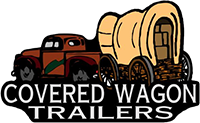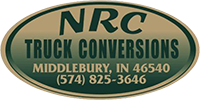Hickory, NC 28601
9am-5pm Mon - Fri
9am-12pm Saturday
Local: 1-828-256-5588
Fax: 1-828-256-8959

Quality Enclosed Trailers and Motorhomes at Affordable Prices
to support:

Learn About Trailers
When you are looking to buy a trailer, you need to be as informed as possible. Here you will find some common questions, as well as information you need to know to make an informed buying decision. If you have questions, please don't be afraid to ask. We are available by phone 6 days a week and by email almost 24/7.
We can custom build you a trailer to fit your exact needs, and we have a large selection of our most popular models in stock. Be sure to check our current inventory page to see what we have available!
Read on below for some tips in determining the correct trailer for your needs.
How much weight will you be hauling?
When purchasing a trailer you will need to determine how much weight you will be wanting to haul at one time. When deciding this, make sure to take into account EVERYTHING that you would possibly need to haul. Once you have the maximum weight you will haul you will need to do some simple calculation. Here is how to figure the payload capacity of a trailer: Step 1) Determine the G.V.W.R. (Gross Vehicle Weight Rating) of the trailer you are considering. Step 2) Determine the empty weight of the trailer (also called the curb or shipping weight). Step 3) Subtract the empty trailer weight from the G.V.W.R. of the trailer. The result is the maximum payload the trailer can handle. If the maximum weight you plan on hauling exceeds this number, then you should look for a trailer with either a greater G.V.W.R., or a trailer with a lower empty weight.
How much weight can your tow vehicle handle?
Another aspect that you will need to consider will be the towing capacity of the vehicle that will be pulling the trailer. If you are using a truck, make sure to consider any cargo that you will be hauling the bed as well. It is a good idea to compare the G.V.W.R. of the trailer and the maximum weight you can tow with your vehicle. Since the G.V.W.R. of the trailer is also the weight of the trailer when fully loaded, if your tow vehicle will handle that then you will be ok. Alternatively, if you know the maximum weight of the cargo you will be hauling, then you can add that to the empty weight of the trailer, and make sure that stays within the acceptable range for your vehicle. If you do not have an owner's manual for your tow vehicle (or the owner's manual does not list the towing capacity) then you can usually call your local dealership for your make of vechicle and someone in the service department may be able to tell you what the towing capacity is. You may also be able to find this information online.
What size trailer do you need?
Trailers come in all different shapes colors and sizes. They can be custom built to just about any size to suit your individual needs. There are some sizes that are more popular than others for certain uses. The following table lists some recommended sizes. Please keep in mind that these are only common usages, your particular situation may require something different. Use these as a starting point only.
| Size | Common Uses |
|---|---|
| 5x8 | Boy Scout Troops, Churches, Bands. Smaller motorcycles (there are 5x8 trailers with a v-nose specifically designed for hauling larger bikes). Great for hauling luggage/gear. |
| 6x12 | General purpose. This is the most popular size for single or dual motorycles, tool trailers, small construction, small lawn care, R/C avation, motorcross / dirt bike racing, go-kart racing. |
| 7x12 | Popular size for hauling 2 larger motorcycles. |
| 7x14 - 7x16 | These sizes are popular for mobile workshops, larger lawn care, larger construction. |
| 8.5x20 - 8.5x24 | Good size for show cars, getting into racing or upgrading from an open car hauler. |
| 8.5x28 - 8.5x32 and larger | Most racers perfer or need a trailer of this size. Usually a race car and a pit bike or golf cart. |
V-Nose or Non V-Nose
This is a question you will have to take your specific needs into consideration when answering. The benefits of a v-nose trailer include increased aerodynamics, resulting in easier towing and better gas mileage, and extra room inside the trailer. In some cases, a v-nose is not preferable. These situations include mounting something on the tongue such as a generator, a storage box, or a spare tire, and needing a larger turning radius. Generally speaking the v-nose also adds to the cost of the trailer.
Height
Getting a trailer with the correct height for your needs is very important. If you are going to be inside the trailer often, such as using it for a workshop, you will want something with enough headroom for you to be able to stand. It's no fun having to work or play in a cramped space. If you are going to use the trailer primarily for hauling and not needing to be inside often, then a lower height may be a good thing. A lower height decreases frontal area of the trailer, so you get less wind drag making towing easier and giving you better gas mileage. Also, many low-rider motorcycle trailers are of a low enough height that you are able to pull them into a standard height garage which you may have to do if you live in a neighborhood that does not allow trailers to be parked in your driveway.
Popular Options/Accessories
| What It Is | What It Does |
|---|---|
| Stoneguard | Protects the front of your trailer from road debris such as rocks |
| Stabilizer Jacks | Usually mounted to the rear of smaller trailers, these allow you to load/unload your trailer without being connected to your tow vehicle. Without these, the front of your trailer could rise up if too much weight is put behind the axles. Can also be used as a jack to change a trailer wheel/tire. |
| Spare Wheel/Tire | Pretty much a nessary evil. Hopefully you will never need it, but you want to make sure you have one available if you need it. Most trailers do not come with spares. |
| E-Track | A very versitile tie down system. Can be surface mounted or recessed in walls and floors. Allows almost unlimited tie down locations. Great if you haul a variety of eqipment that may change from time to time. |
| D-Rings | Avaialble in various weight ratings, sizes, and mounting options, these are pretty much the most common way to tie your cargo down. If you will always be hauling the same items, d-rings may be the way to go. |
| Flush Lock | Seen on many motorhomes and campers, the flush lock allows you to close and latch a door from the inside. Also provides extra security as most flush locks have a deadbolt built right in. |
| Roof/Sidewall vents | Let heat and fumes out of your trailer. Sidewall vents clear gas fumes/etc out while you are traveling down the road, and roof vents give you venting even while you are parked. |
Black Streaks
This is one of the most dreaded things about owning a trailer. They will ALL get black streaks down the sides of them. There is no way to prevent it. It is caused from the aluminum and silicone sealant of your trailer interacting with the air (oxidation) and rain carries it down the sides of your trailer. There is hope however. "Black Streak Remover" is available that is specifically designed to remove these troublesome marks. Washing (and waxing) your trailer regularly will make the streaks easier to remove.
Torsion (Torflex) vs. Leaf Spring Axles
I am often asked which is better. There is no easy answer to this question. Inside of a torsion axle, there is another square metal rod that the wheel is attached to. Around this rod is rubber. As a wheel moves up and down, the inner rod flexes against the surrounding rubber to absorb the shock. In a torsion axle trailer, each wheel can move independently of the others. In a leaf spring setup, the shock absorbtion is achieved by several flat pieces of metal which are arched. When the trailer encounters a bump in the road, the springs bend the opposite direction, but return back to their arched shape. When properly loaded both systems will handle the same amount of weight, but may have different ride characteristics.
Ramp Rear Door or Swing Rear Doors
Which is better for you will be determined by your inteded use. If hauling anything that is heavy with wheels, such as motorcycles, lawn mowers, ATVs, etc., a ramp door is usually prefered. If you aren't hauling anything like this, a swing open rear door may be better. There may be locations, espically on construction sites, that you may not have enough room to drop a ramp. Also, if you plan to use a fork lift to load a trailer, you may have to have the swing doors as well. In the event that you need to haul something that must be driven (or rolled) up into a swing rear door trailer, aluminum ramps are available.








